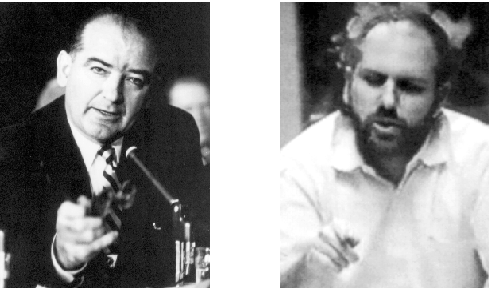Here’s Machiavelli’s thoughts about this same topic, more than half a millennium ago (1513):
As the human race increased, the necessity for uniting themselves for defence made itself felt; the better to attain this object, they chose the strongest and most courageous from amongst themselves and placed him at their head, promising to obey him. Thence they began to know the good and the honest, and to distinguish them from the bad and vicious; for seeing a man injure his benefactor aroused at once two sentiments in every heart, hatred against the ingrate and love for the benefactor. They blamed the first, and on the contrary honored those the more who showed themselves grateful, for each felt that he in turn might be subject to a like wrong; and to prevent similar evils, they set to work to make laws, and to institute punishments for those who contravened them. Such was the origin of justice. This caused them, when they had afterwards to choose a prince, neither to look to the strongest nor bravest, but to the wisest and most just. But when they began to make sovereignty hereditary and non-elective, the children quickly degenerated from their fathers; and, so far from trying to equal their virtues, they considered that a prince had nothing else to do than to excel all the rest in luxury, indulgence, and every other variety of pleasure. The prince consequently soon drew upon himself the general hatred. An object of hatred, he naturally felt fear; fear in turn dictated to him precautions and wrongs, and thus tyranny quickly developed itself. Such were the beginning and causes of disorders, conspiracies, and plots against the sovereigns, set on foot, not by the feeble and timid, but by those citizens who, surpassing the others in grandeur of soul, in wealth, and in courage, could not submit to the outrages and excesses of their princes.
Under such powerful leaders the masses armed themselves against the tyrant, and, after having rid themselves of him, submitted to these chiefs as their liberators. These, abhorring the very name of prince, constituted themselves a new government; and at first, bearing in mind the past tyranny, they governed in strict accordance with the laws which they had established themselves; preferring public interests to their own, and to administer and protect with greatest care both public and private affairs. The children succeeded their fathers, and ignorant of the changes of fortune, having never experienced its reverses, and indisposed to remain content with this civil equality, they in turn gave themselves up to cupidity, ambition, libertinage, and violence, and soon caused the aristocratic government to degenerate into an oligarchic tyranny, regardless of all civil rights. They soon, however, experienced the same fate as the first tyrant; the people, disgusted with their government, placed themselves at the command of whoever was willing to attack them, and this disposition soon produced an avenger, who was sufficiently well seconded to destroy them. The memory of the prince and the wrongs committed by him being still fresh in their minds, and having overthrown the oligarchy, the people were not willing to return to the government of a prince. A popular government was therefore resolved upon, and it was so organized that the authority should not again fall into the hands of a prince or a small number of nobles. And as all governments are at first looked up to with some degree of reverence, the popular state also maintained itself for a time, but which was never of long duration, and lasted generally only about as long as the generation that had established it; for it soon ran into that kind of license which inflicts injury upon public as well as private interests. Each individual only consulted his own passions, and a thousand acts of injustice were daily committed, so that, constrained by necessity, or directed by the counsels of some good man, or for the purpose of escaping from this anarchy, they returned anew to the government of a prince, and from this they generally lapsed again into anarchy, step by step, in the same manner and from the same causes as we have indicated.
Such is the circle which all republics are destined to run through.


